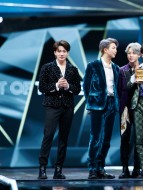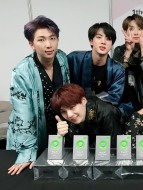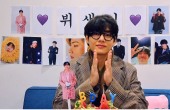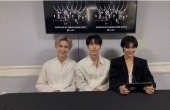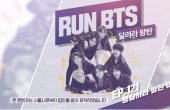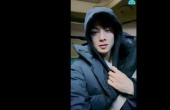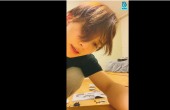Decline of the pop-star audition program
Viewers move past emphasis on impressive vocals to songwriting, producing, other aspects of music-making
During its early years, singing audition program “Superstar K” gave birth to a host of pop stars such as Seo In-gook and Park Bo-ram, and the folk rock band Busker Busker, whose songs still top music charts annually.
Now about to wrap up its eighth season, however, the show seems to be flailing amid a sea of music variety shows boasting fresh new formats. Its most recent episode, which aired Thursday on tvN and Mnet, grabbed a meager viewership of 1.5 percent, according to Nielsen Korea.
Chief producer Kim Tae-eun says that while the figures are undoubtedly disappointing, “Superstar K” had aimed, more than anything, to return to its “fundamental raison d’etre” this season.
“The show was first created to bring light to talented musicians who otherwise wouldn’t have been seen by the world,” she told reporters at a press conference Tuesday in southern Seoul.
“So this season, we tried to cut out the sensational and focused more on the stage performances and the singing. Internally, the staff agrees that this will provide a strong foundation for future seasons.”
The show’s numerous panel members -- musicians Gummy, Gill, Brave Brothers, Ailee, Kim Yeon-woo and Kim Bum-soo and entertainment agency FNC’s CEO Han Sung-ho -- added to the diversity in opinion, the judges agreed.
“There was intense debate among the seven of us, and I really understood how diverse musical perspectives are,” said Han. “Everyone feels something different from watching a performance.”
Beyond auditions
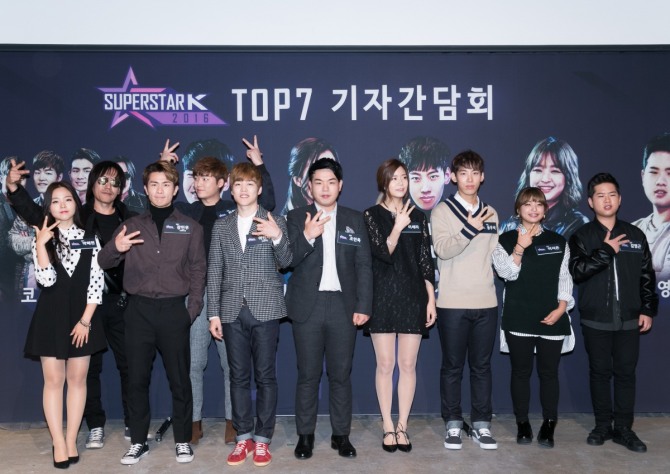 |
| The top seven finalists of singing audition program “Superstar K” pose for a photo at a press conference in southern Seoul on Tuesday. (CJ E&M) |
The years following the advent of “Superstar K” in 2009 saw a flood of similar singing audition programs, from MBC’s “Star Audition: The Great Birth,” which ran from 2012 to 2013 and sought contestants both in and out of Korea, to SBS’ “K-pop Star,” currently airing its final season this year. Producer Park Sung-hoon of “K-pop Star” himself acknowledged the “decline of the audition format” at a press conference earlier this month.
Emerging now are music programs with more novel twists.
“Fantastic Duo,” which ran from April until this month, paired talented non-celebrity participants with renowned singers to perform new renditions of familiar hits onstage.
Cable network JTBC’s “Phantom Singer,” which began airing this month, brings together previously “hidden” vocalists active in opera, musicals and K-pop. Hybrid-genre teams of four are formed to compete against each other.
“Melody to Masterpiece,” airing on tvN since October, features two teams of producers who are given the task of putting together one quality song in just 45 minutes.
Mnet’s “Pan Stealer” attempts to revert the notion that gugak, traditional Korean music, is difficult and unapproachable. It features bands of traditional instrument players competing in onstage performances, led by actress and gayageum (a traditional zither-like instrument) player Lee Ha-nui.
In “Sing for You,” set to air on JTBC on Dec. 3, musicians will create songs out of everyday stories that viewers send in.
While none of these shows are posting record ratings as of yet -- “Fantastic Duo” wrapped with 6 percent viewership -- the broadening formats reflect an interest in “the many different aspects of music-making,” according to culture critic Jung Deok-hyun.
“There used to be a perception that impressive vocal skills were to be valued above all,” said Jung. “But viewers now realize that there are many different elements to music.”
By Rumy Doo (doo@heraldcorp.com)









